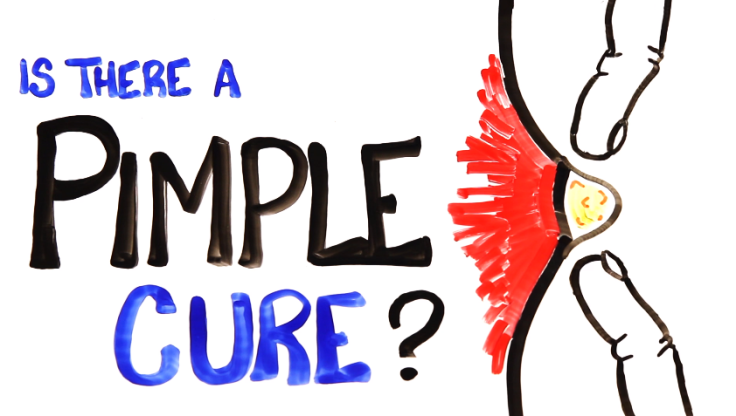Acne Treatment: Why You Get Pimples And What You Can Do To Stop Them

Not everyone gets pimples, but many of us, from fresh-faced teens to young adults on their first job interview, fear the unexpected appearance of this under-the-skin menace. But what are they, and how close are we really to finding a cure to everyone’s least-favorite facial feature? In the video above, ASAP Science explains what pimples are, how we get them, and what science is doing to help us get rid of them.
The human body has over four million hair follicles. Inside these follicles is a gland that produces an oil called sebum, which moisturizes your skin and hair. But these follicles can be blocked by dead skin cells, and although sebum keeps being produced, it’s stuck underneath the blockage. Bacteria shows up to feed on the dead skin cells, so your body sends extra blood and white blood cells to help fight the bacteria. This creates the telltale red swelling associated with pimples. Once the blood and white blood cells do their job, the cells die and, combined with the dead skin cells, create the whitehead pimple.
Pimples are plentiful on teens due to high levels of hormones like testosterone thanks to puberty, which increases the amount of sebum produced, which in turn ups the chances of blockages occurring. It’s not just teens that are affected by pimples, however. They can occur when someone is dealing with a stressful situation because of high levels of cortisol, the stress hormone. This increases inflammation and lowers our immune systems' ability to fight off the bacteria that are feeding on the dead skin cells in blockages.
So, what can be done to cure pimples once and for all? Cleaning your face and occasionally exfoliating your skin can work, however cleanliness, as well as your diet, only plays a minor role in the appearance of acne. Your genetics and hormones are actually more responsible for your breakouts, but there are drugs that can help kill acne-causing bacteria, reduce the amount of sebum produced, and remove dead skin cell blockages. Science has also been looking at those who don’t get acne as a way of curing those who do. This bacteria found on non-acne people could one day help those who suffer from pimples, but it’s still a long way off.



























